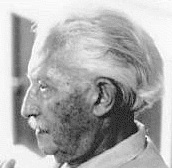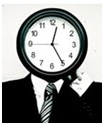|
 |
|
 |
|
|
||
Erik Erikson - Psychology and Childhood
Erik Erikson (1902-94)
German-born American psychologist (pictured right), famous for:
His most famous book is… Childhood and Society (1950).
What did he teach us about psychology and childhood?
1. Eight stages in your development a) the first four stages These finish with your teenage years, when an identity crisis is likely. This happens because teenagers (independently of their parents) are trying to work out their:
b) the last four stages These begin around the age of 20, when you learn about love and self-esteem through family, friends and peers. You may be lonely due to fear of rejection, but marriage and children will give you companionship and purpose. 2. Identity crisis This occurs when you lose your sense of:
This crisis starts in your teenage years (see point 1) and is becoming more common, as the world changes faster than people’s ability to cope with it.
3. Parents are powerful Their support and encouragement develop in a child:
Children will:
4. Time is precious You must
5. Morals are mighty The happiest people:
Their principles give them the wisdom and courage to overcome life’s problems like aging,
despair and fear of death.
Key quotes on family and children Children love and want to be loved. The most deadly of all possible sins is the mutilation of a child’s spirit.
Key quote on time management The richest and fullest lives attempt to achieve an inner balance between three realms: work, love and play.
Key quote on positive thinking If life is to be sustained, hope must remain. |
|
|
||
|
|
||
| Copyright © wisdomtowin.com 2025 All Rights Reserved | ||
|









